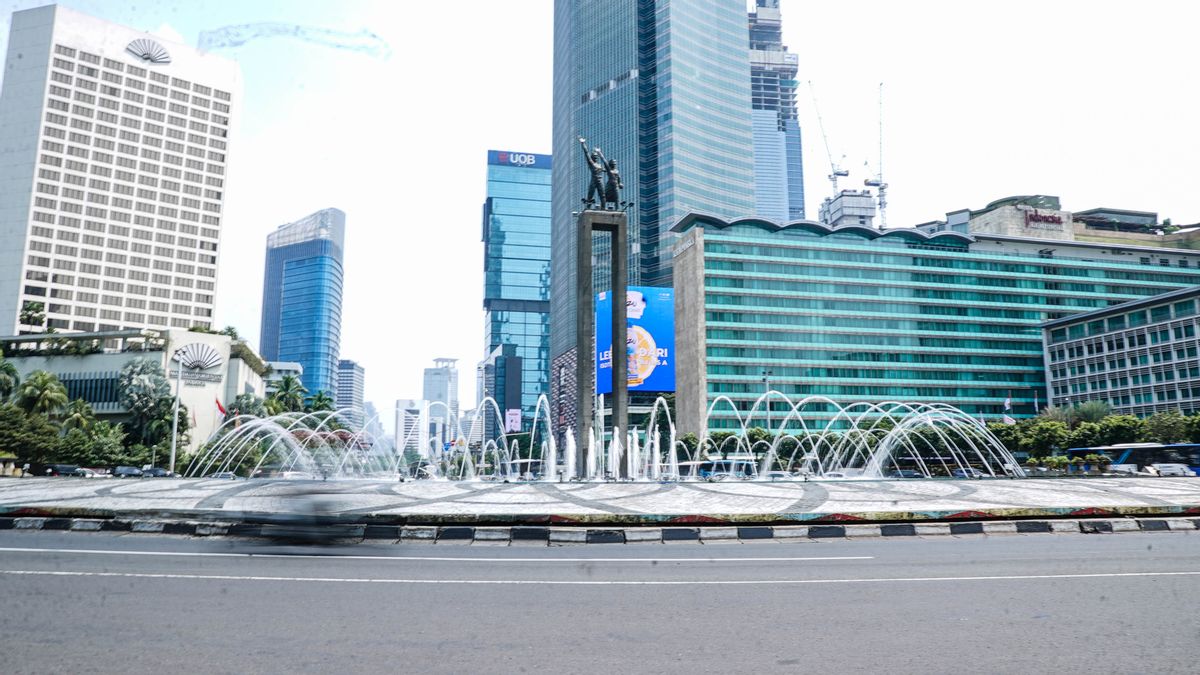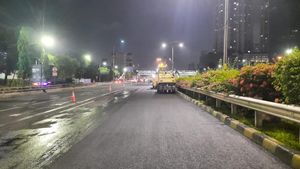JAKARTA - Singapore's economy experienced another negative growth by recording a figure of minus 12.6 percent (year on year / yoy) in the second quarter of 2020. This is also a sign that Singapore has entered an economic recession due to minus economic growth in the last two quarters.
Economist and Research Director of the Indonesian Center of Reform on Economics (CORE), Piter Abdullah, is of the opinion that the recession in Singapore is at the same time a sign that Indonesia has also been overshadowed by a recession. In times of crisis due to the COVID-19 pandemic, an economic recession is inevitable.
"Actually, our (recession) is in sight," he said, in the CORE Economic Forum Webinar entitled Important Steps for Banking in Encouraging MSME Business during the Pandemic, Jakarta, Wednesday, July 15.
Piter explained that economic recession is a natural thing experienced by countries in the world in the midst of the COVID-19 pandemic. Especially countries that are heavily dependent on exports such as Singapore. Therefore, the world economic slowdown has had an immediate impact on their economies.
Meanwhile, the Indonesian economy is more dependent on household consumption. Piter said that during the pandemic, consumption had decreased but not too much.
"Because consumption, especially primary goods, is still there. So that the economy, even though it is contracted, will not be as deep as Singapore," he said.
Piter assessed that there are still ways for Indonesia to overcome an economic recession. One of them is by ensuring that the country's business world and financial sector remain in good condition.
"A recession is inevitable, but as long as we can defend the business world and the real sector, we hope the business world and the financial sector can recover quickly," he explained.
According to Piter, the Indonesian economy has experienced a very significant slowdown. However, not for the first quarter of 2020 because the decline was not too extreme.
"But later in the second quarter it is expected to be much worse, where in the first quarter we are still at the level of 2.9 percent. Worse in the second quarter because we did the PSBB which was just relaxed in June," he said.
For your information, Singapore has fallen into the abyss of recession after their economic growth shrank to minus in the last two quarters.
In the first quarter of 2020, Singapore's economic growth was recorded at minus 0.7 percent (quarter to quarter / qtq). Then, on Tuesday, July 14, the Singapore Ministry of Trade and Industry (MTI) announced that the country's economic growth had dropped 41.2 percent (qtq) in the second quarter of 2020.
On an annual basis, Singapore's economy also contracted 12.6 percent. Singapore's condition seems to be the initial alarm for other Southeast Asian countries against the threat of a recession.
The English, Chinese, Japanese, Arabic, and French versions are automatically generated by the AI. So there may still be inaccuracies in translating, please always see Indonesian as our main language. (system supported by DigitalSiber.id)












